

After getting our hands on the latest version of FIFA, we had the opportunity to sit down with gameplay producer Aaron McHardy and discuss the introduction of women's football, rebalancing gameplay all over the pitch, the new training mode coming to the game, and how his own footballing philosophy has affected the game through the years.
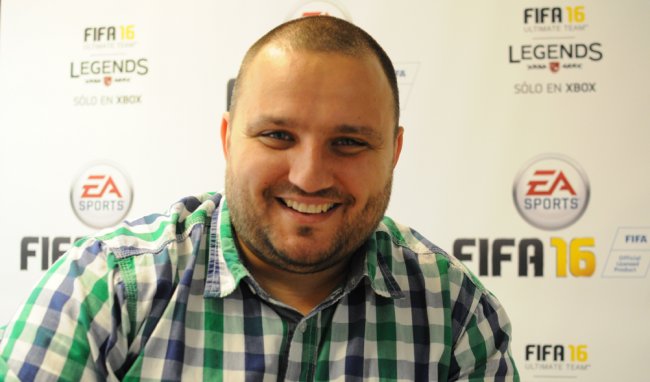
Gamereactor: The demo that we just played (which you can read about here) was really polished, and it feels like, from an outsiders perspective, that you know exactly where you want to take this year's instalment. Would you say that's a fair comment?
Aaron McHardy: Yeah, absolutely. I think we were committed from early in the year to our plan: innovation across the pitch. We knew what we needed to do, we needed to get confidence in defending back, because that was lost. We needed to make midfield matter, and we needed to do it by not nerfing - for want of a better term - the attack in the game. So that direction was clear; make it polished, make it balanced. We have that engine, so let's let that shine and let people play. We knew from the get and we started working on it right away.
GR: Last year's effort was probably the most divisive game in recent times, certainly since you've been involved with the project. What do you think was the most important thing that needed setting right?
AM: It was a slight imbalance. You play four star teams online or offline and the gameplay is really good. But when you get into the Real Madrids and you have really fast, fast players who're good dribblers, there was an ever so slight imbalance, and that one thing created a behaviour whereby everybody tried to use this tactic and it usurped everything else we were doing across the pitch and covered up all of the sophistication that we've been building for ten years. Because that was all you needed to do, so you didn't see anything else. That was the one thing for sure, and then led us to the prerogative of confidence in defending, that was when you know someone's coming at you one v one, you didn't feel like you could press tackle because if you missed he was likely in on goal. Defending as a unit, you needed help from your team mate. We needed to address that problem so that everything else in the game would come through to the surface, and then we could start working on those things and polish those things, and work on better mechanics for attacking, like passing with purpose and no touch dribbling, and do all that stuff to give people the enjoyment and excitement of the game again. We've been steadfast on that since day one.
GR: So forgetting about necessity, what's your personal favourite new addition to the formula?
AM: I think my favourite is the interception intelligence. I think that is the most profound change to bring back the midfield, and the minute you pick up the game you notice it right away. I got into a habit, as soon as I'd win back possession with my centre back my brain would turns off for a split-second, stick goes to the right, tap pass a couple of times, get it up to Giroud or Welbeck or whoever's up the pitch, and then I'd starting playing from there. We had this moment where we were saying "this is wrong, we just missed out the lion's share of what makes football beautiful, and we need to bring that back and let people build through the midfield and be creative." That's what football's all about, creativity, and I felt like we lost some of that. So interception intelligence brings that back by the virtue that your defenders are around you, stepping in to cut out the passes that shouldn't get there; it makes you think about what you've got to do and it's cerebral and the creative juices are flowing when you're building your attacks. And that what gets you immersed in the game and has you enchanted when you do something spectacular, because you feel like you earned it, and I think that's the most profound change that we have.
GR: How has your own personal football philosophy informed game design over the years? Because I know what team you support [Arsenal], surely watching all those Wenger teams has influenced the game's design in some ways.
AM: I think there's some truth to that. Not just Wenger, my own father who coached me growing up and coached me to play a specific style of football, similar to that which Arsene coaches the boys to do, but I don't think that it dominated anything. We have a lot of people at the studio who are passionate about football, there's ex-pros other than myself at the studio [McHardy represented Jamaica at international level] who bring something to the table. Shaun Pejic, one of our producers, was a defender who played in the English leagues, not the Premier League, but one of the lower divisions, and he brings a different flavour to things at the table. And we have other players who play competitively locally that are decent players; everybody brings something else. There's arguments where I say "no, we've gotta do it this way" and someone argues back at me "no, we've gotta do it this way" - all of these things are healthy in us creating a directive whereby we want to make a carte blanche blank canvas: you can do what you want. We don't want to build a game where you have to play like Arsenal to win, because only Arsenal fans will like that... We want you to be able to play tiki-taki like Barcelona, we want you to be able to play route one if that's what you want to play. Get it out wide and whip in crosses.
While I might not do that in my career or growing up, or like that in my team in FIFA, that's a tactic that Gareth Eaves, our animation director, was passionate us changing the dynamic crossing this year, because he didn't feel like he could score the goal that would get him out of his seat watching Liverpool play by whipping the ball round the back and someone getting on the end of it. He felt that was something that was missing. We get it from all angles and the argumentation about football and what it means to everybody is what gives us that direction to create the game. Just like in the real world there's a million ways to play it, and let's see that play out; and that's kind of the directive for this year.
GR: One thing that has always intrigued me is where you get your stats. Do you go to Opta or do you have your own homegrown database?
AM: We have our own homegrown database team... and we've got data collectors that are all over the world watching leagues and players. We've recently had to start watching a lot of international women's games (we watched them already but we've got to start adding attributes to those players that are now in our game). They have people dedicated to each team and this person might be an Arsenal data collector, and he's going to study Arsenal and try to get the best replication, and they're going to debate about it themselves and get feedback from the forums and try and arrive at the truth of what a player is. And we've got people all over the world doing that as a full-time job.
GR: You mentioned the women's game then, how have you gone about replicating the differences between that and the men's game, most notably the pacing?
AM: I think it came naturally, if I'm honest, by virtue of Gareth Bale is faster than Christine Sinclair. That doesn't mean that Christine Sinclair isn't one of the world's great players, she is absolutely, but because he's faster and because by and large the men's game players can run faster, that changes the dynamic... When the database team set those attributes accordingly for those leagues, it changes the way you play the game because of the differences in the personalities of all those players. And that's what changes it in the real world, the personality of all those women's international players in the real world are what makes the sport, and we try to mimic that as best we can and that's what we get in the game. And it's a nice byproduct that we've got a new way to play FIFA, just by virtue of doing the work.
GR: The new training mode looks really good. Can you talk us through the genesis of that mode and what you hope to achieve with it.
AM: The training mode is really cool. It's something that we've built to be able to try and bring new gamers up to speed on FIFA a lot quicker, get our mid-tier fans to be able to be more proficient quicker, and even teach something to someone who knows everything about the game... We've been actively working on on-boarding in FIFA for some time, and I'll be honest, we haven't been very good at it. We used to have tutorial videos back in the day in the game, and we would hope that people would leave the game and go into the menus and watch these tutorial videos. Then we put them online, and we'd catch some people but not everybody gets to see that. That led to the creation of skill games, as it was a more passive way to learn the game while still having fun.
But we did a lot of research over the last couple of years into how best people learn to play FIFA, and what we found is the best way to learn how to play a video game is with your buddy sitting next to you on the couch, and he leans over and says "A is pass, B is shoot and that's all you need to know for now, let's play." He doesn't want to teach you, he wants to play and he wants to beat you [laughs]. So you're playing, you become proficient with it, he does a through-ball and you say "how do you do that?" "press Y" and you learn how to do a through-ball, and slowly you progress through the levels until the two players are proficient together. We wanted to recreate that in the game, and that's what the FIFA Trainer is all about. We put overlays onto the pitch while you're actually immersed in the game experience, because it's different when you're learning it in isolation, you need to learn it under pressure. When you're learning in isolation [in skill games, for example] when you change all the context and put them in a match situation, they may not have learned that muscle reflex of when to use it. So we're trying to do that right there in the game by adding the FIFA Trainer. It'll progress with you as you get better at the game. So we just start showing you the ground pass, but as you get better we'll say "ok you've got the ground pass let's teach you the lob pass", and as you get better at that "let's teach you how to play a lofted through-ball".
So we drip-feed you the controls to get you more proficient at the game. And it's contextually accurate too, so if you're in the box with the ball it's going to be telling you the shooting controls, if you're in midfield it's going to be telling you the passing controls, if you're out wide it's going to be telling you the crossing controls. If you're defending it's going to tell you the defensive controls. So we're trying to recreate your buddy on the couch in overlay form in the game.
GR: For a lot of players who've not mastered some of the more nuanced controls, it's going to be hugely helpful when getting people up to a more competitive level.
AM: I think it's about extracting as much fun as you can from the game, and we want to help you do that. I always say that FIFA can fundamentally be played with two buttons and the left stick, you just move around and pass and shoot; you've got enough. But there's a lot of layers to FIFA that can keep people immersed and keep people learning new things, and it has the creativity... you know we talked about passing with purpose and no touch dribbling and using modifiers to do those things, it adds to creativity in the game, and we want to make sure that we're surfacing that to people so they know they can do those things. Whether they're ready to do that or not is up to them, they can choose when they want to do it, but we want to make sure that we're offering that up.
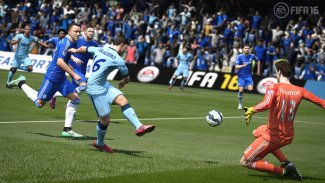

GR: So with FIFA 16 what is your overriding ambition, what is your vision for the game? Because it feels like there's a lot riding on this year's entry. Your competition is catching up so this is a really big year for you. It sounds like you've got a handle what can be improved, but if you had to sum it up, distill it down to the basics, what are you hoping to achieve with the next game?
AM: I think what we want to achieve is we want to get the balance so perfect that the sophistication of our engine shines through... What that means is, we've got all of the pieces of the puzzle, we need to get down to the minute details and forget about making wholesale changes to the game; let's make it as good as we can. Let's make it consistent, let's make it emergent, let's make it immersive, let's continue to fix the problems that we see, so we can get that balanced experience and it allows you to play the way you want to play.
That's how we settled on the three directions that we've chosen; confidence in defending comes directly from what I was talking about earlier, finding new ways and giving you the tools you need to break down an attack so the attacks immediately become more diverse. Making the midfield matter was something that we thought was missing from our game and we needed to bring that back to life, and we've done that with interception intelligence and passing with purpose. And we wanted to do all that without sacrificing the moments of magic that are in there in FIFA.
We want people to still feel like the best players in the world are deadly, and when they give them the ball then they can affect change and they can make things happen, that's where the engagement and the immersion comes from. That's the directive, it's to get the balance so right that the variety is overpowering and you can play the game the way you want to play.
GR: Changing the subject slightly to old-gen FIFA. You've managed to squeeze a lot out of those machines, but no doubt there's still a little wriggle room. What are you able to do with the new consoles that then trickles down to the old-gen versions of the game?
AM: So the gen3 game is still made by my team, my gameplay team, and all the guys back home are still passionate about making those games as best they can. We're not throwing that one by the wayside, that's a big game for us as a company as well, and we recognise that. All of the stuff that we've presented to you today is going into the gen3 game, with the exception of a few features that technologically cannot run on the old consoles, like for instance the new goalkeeper - we just don't have the power to run it so we can't do that. But, all of those fundamental details about defending as a unit, defensive agility, all these things that we've been talking about, the crossing targeting; these things are all going into the gen3 game, and we're definitely pushing the envelope on gen3 still in terms of gameplay.
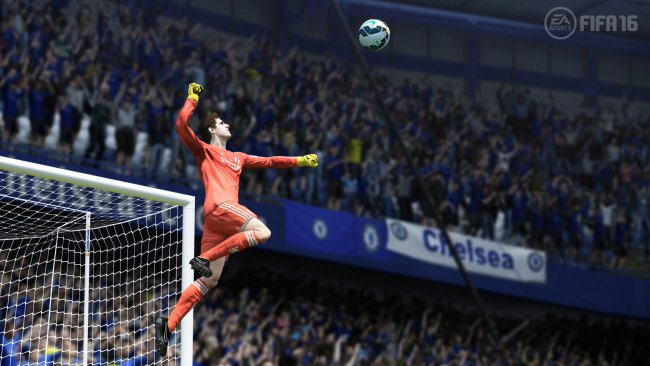




GR: You've been working with the current-gen consoles for a while now, and it feels like you've finally got to grips with the added horsepower of Xbox One and PS4, with the increase in AI for example. Would you say that was a fair comment?
AM: Yeah, I think that there's some truth to that. Obviously the new consoles opened up a lot of doors for us, we wouldn't have been able to rewrite the goalkeeper on the old consoles the way that we did. There's other features that we didn't have the memory on the old consoles to do because there was a lot of animation detail in there. We're adding new animations to the new-gen version all the time because we have those resources, but I don't know if we're at the pinnacle of where we're saying "now we've got this under control". We made a fantastic game with FIFA 14, it was the highest rated sports game and one of the highest rated games on Xbox when it came out. FIFA 15, while we've talked about some of the shortcomings, it was a fantastic game, and people are still playing it in droves today. I don't know the exact numbers, but we're talking millions and billions of games that are being played every day. I think we're still trying to push the envelope though.
And I think this year - in the past you may have heard me say you need to crack a few eggs to make an omelette - and I think the directive is different this year and we're not trying to put up that step-based loco, we're not trying to put up the new goalkeeper, we're not trying to put up impact engine. We're looking at the game wholesale and saying "we've got this technology already, we need to make sure people are seeing it, feeling it, experiencing the complexity of what we have in a balanced way that makes them jump out of their seats.
GR: I'm going to say this, but I don't want it to sound derogatory: It feels like you're almost making the ultimate patch for FIFA. You've got everything in place, and now you just want to nail down that balance and really perfect the minutiae.
AM: I don't think it'd be the ultimate patch because I think the patch size would be... [laughter]. That's a whole lot of change you know?! There's a lot of change, that's why we talk about innovation across the entire pitch. We use that line because it's very difficult to explain where the change is coming from, because it's happening everywhere. It's happening, you know, we've been saying we don't leave a stone unturned, we want to touch every part of gameplay to get what we want.
But the sentiment of what you're saying is absolutely true; we need to have a higher polish on our game, we need to have more emergent behaviour, we need to have more variety, we need to have all these things and we need to go into the depths of every little piece of code that we have, and every sub-system to make sure we get it right, to bring those things to the forefront. In that regard I would say it's true, but don't shortchange us on how much is happening, there's a ton of stuff happening, some of the features like defensive agility, that's twenty-five features, that's twenty-five changes that have gone into getting that balance right between the dribblers and the tacklers. There's a whole lot of work going into this game and it's one of our biggest, so absolutely, it probably wouldn't be a patch [more laughter].
This interview was conducted after having played the build of FIFA 16 which was on display during this year's E3. During the event in L.A. we were able to catch up with series producer Nick Channon, and you can see what he had to say about the the next entry in the series in the interview below.
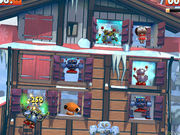
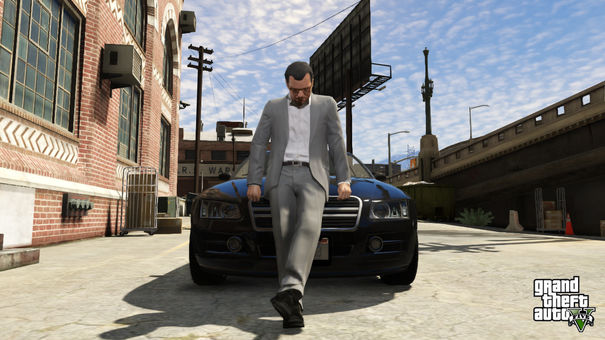
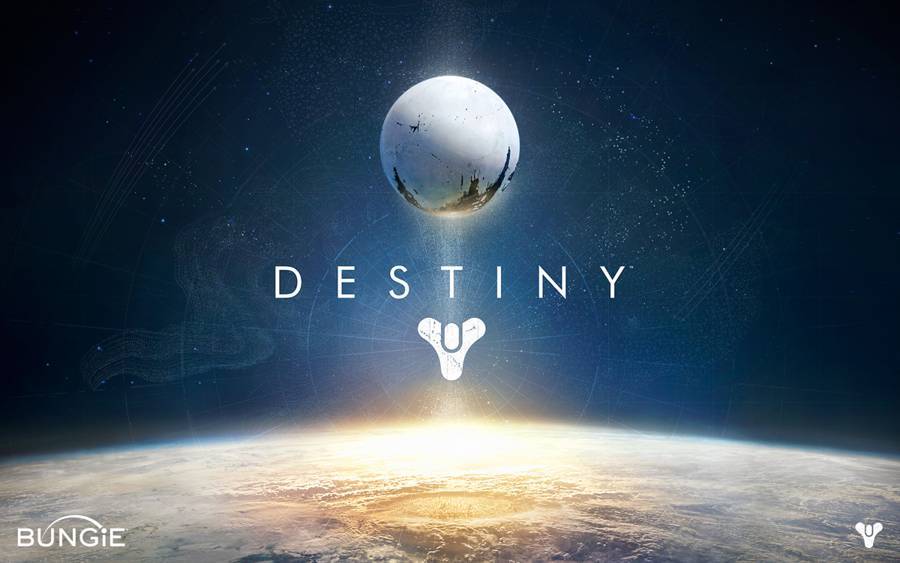
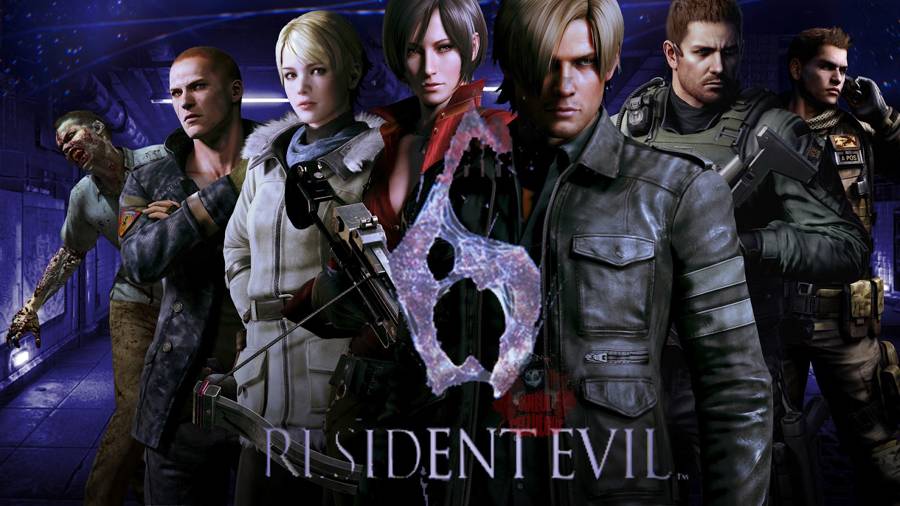
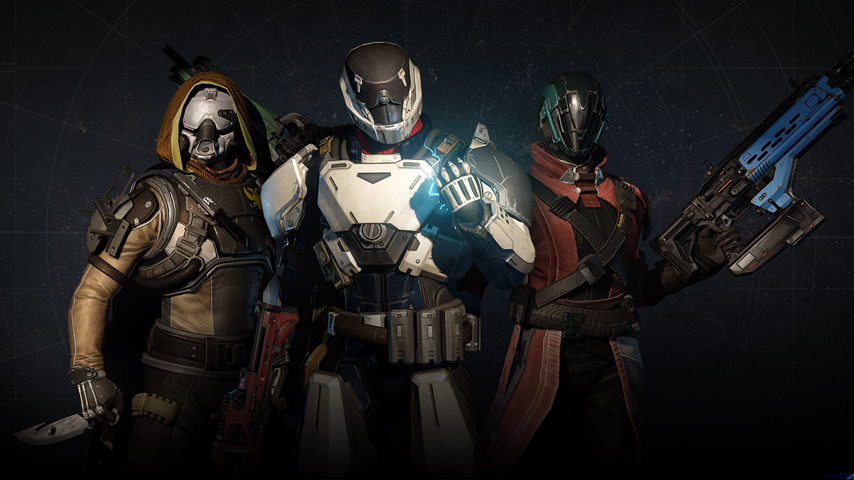 Destiny: the grand pre-House of Wolves checklist and mega-guide
Destiny: the grand pre-House of Wolves checklist and mega-guide Top 10 Strategy PC Games of All Time
Top 10 Strategy PC Games of All Time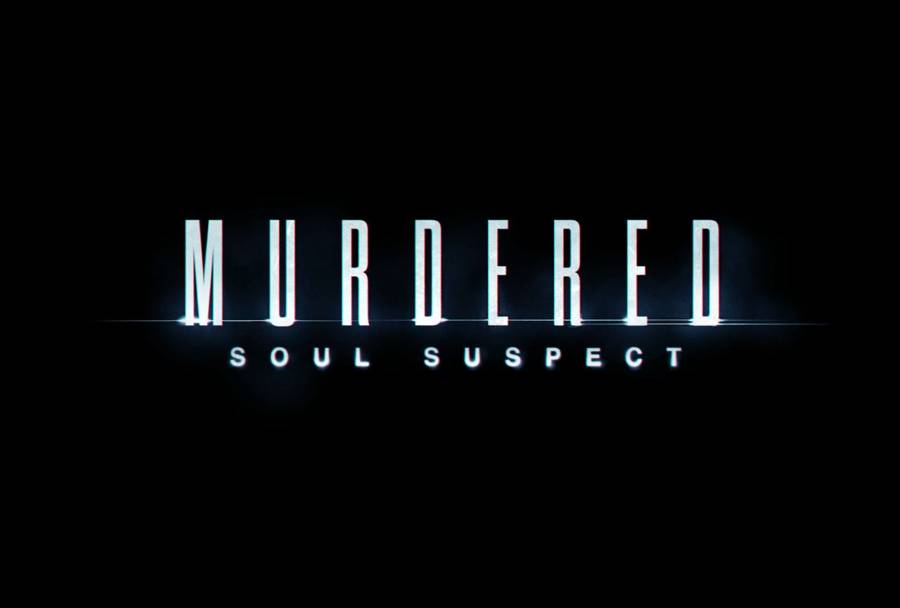 Murdered Soul Suspect Shipyard Park Case Guide
Murdered Soul Suspect Shipyard Park Case Guide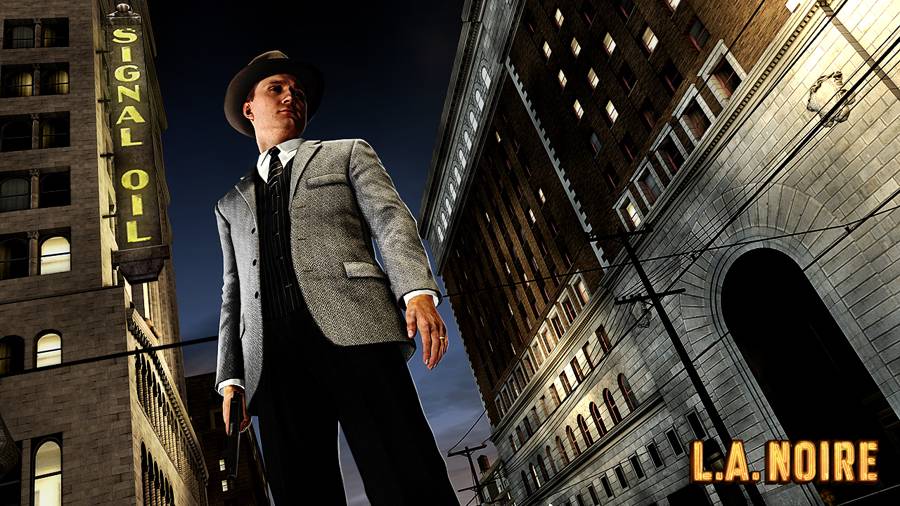 L.A. Noire House Of Sticks Guide
L.A. Noire House Of Sticks Guide The Week in Review: GTA 5 is bigger than all your faces combined edition
The Week in Review: GTA 5 is bigger than all your faces combined edition